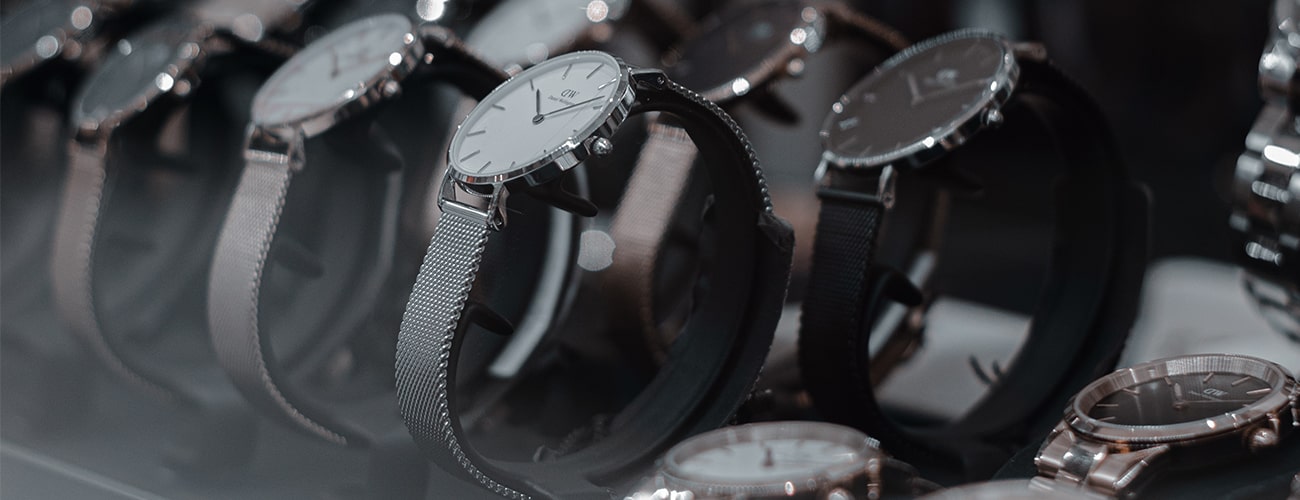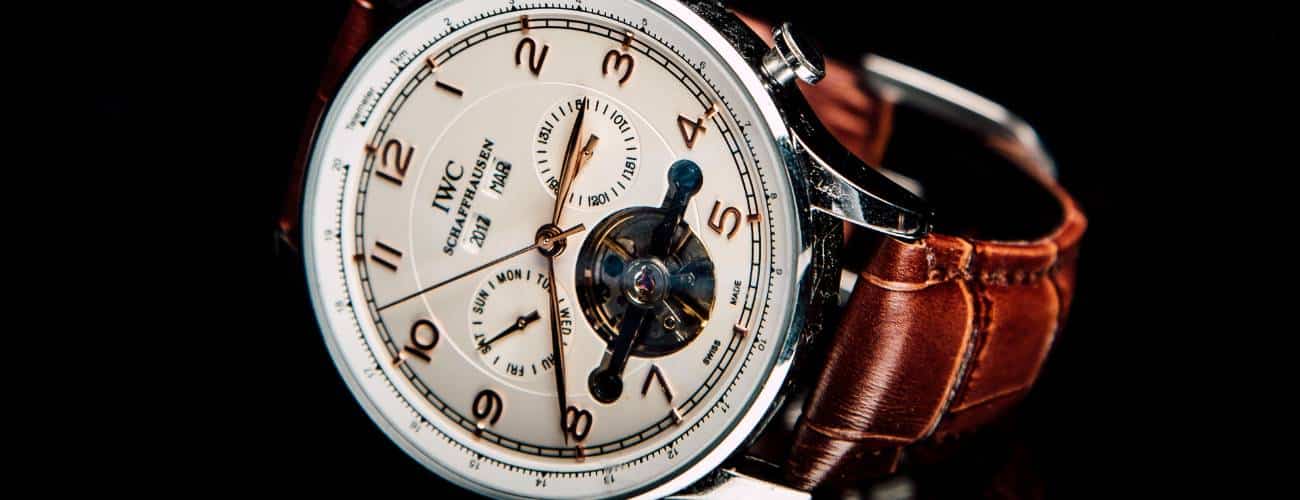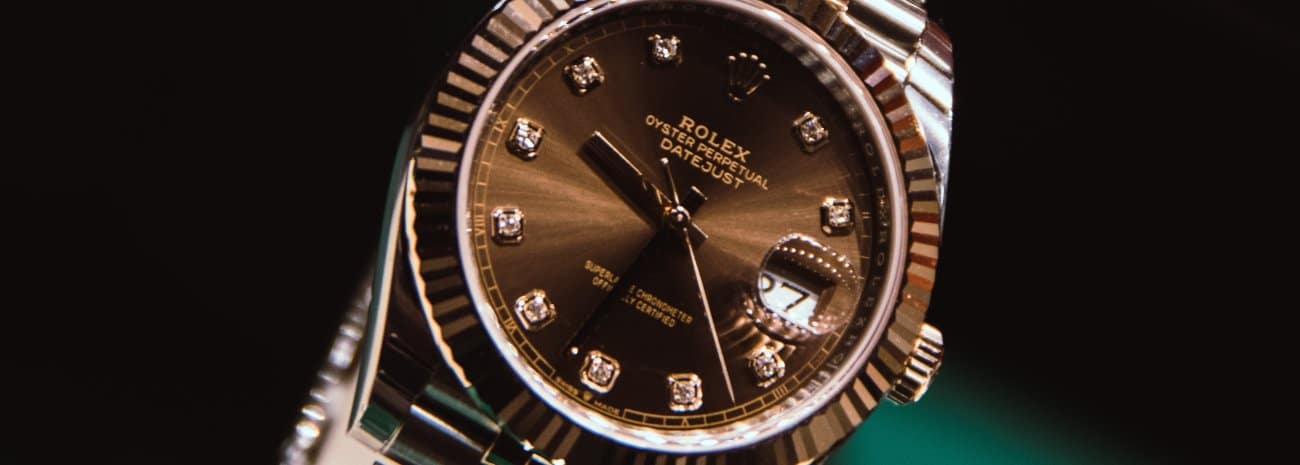New Vs. Old Watches: What’s The Better Investment?
With the second-hand luxury watch market booming, the question on many people’s minds is: should I be investing in a new watch or a vintage piece?
Does a Rolex from the ‘60s or ‘70s hold more selling power than one that was created in the past couple of years? There are several factors that go into what makes a watch a great investment, which we’ll cover in this blog, so you can decide whether to buy new or to buy old when it comes to luxury watches.
Understanding Watch Investment
Watches, like wine or art, can appreciate over time. The factors affecting their value include brand reputation, rarity, condition, and historical significance. If chosen wisely, watches can be a valuable addition to an investment portfolio, combining financial gain with the pleasure of wearing a beautiful timepiece.
Investing in New Watches
Buying and selling watches as an investment can be an intriguing endeavour. The process involves identifying models with high potential for appreciation, often limited editions or those from renowned brands.

Consider the Rolex Daytona, for instance. Its value has surged since its launch, owing to its popularity and limited availability. But it’s important to remember that not every new watch will appreciate similarly.
Advantages Of Investing In New Watches
- Warranty and After-Sales Services: Buying new ensures you get the full manufacturer’s warranty, along with reliable after-sales service.
- Modern Features and Technology: New watches often boast the latest innovations and designs, making them desirable to modern consumers.
- Potential Appreciation: Some models, particularly limited editions or those from sought-after brands, can appreciate significantly.
Disadvantages Of Investing In New Watches
- Immediate Depreciation: Like cars, many watches depreciate once purchased new.
- Market Volatility: Trends change, and today’s hot item might lose its appeal tomorrow.
- Choosing the Wrong Model: Not all new watches will appreciate in value.
Investing in Vintage Watches
Vintage watches have a charm that new ones often can’t match. They tell a story, offer a slice of history, and some models are rare commodities. The 1970s Omega Speedmaster, for instance, has seen substantial appreciation due to its connection with the Apollo moon landing.
Advantages Of Investing In Vintage Watches
- Potential for Appreciation: Many vintage watches, especially rare or historically significant ones, appreciate over time.
- Unique and Rare Models: Owning a piece of history that few others possess can be thrilling.
- Historical Significance: Watches linked to historical events or personalities can fetch higher prices.

Disadvantages Of Investing In Vintage Watches
- Maintenance and Servicing: Older watches may require more frequent and costly servicing.
- Risk of Counterfeit Watches: The market for vintage watches is rife with counterfeits, particularly fake Rolexes.
- Difficulty in Finding Specific Models: Locating a specific vintage watch can be a challenging and time-consuming task.
Comparing New vs. Vintage Watches as an Investment
When deciding whether to invest in new or vintage watches, there are several factors to consider. The best choice for you depends on your individual preferences, your knowledge of the market, your risk tolerance, and the amount of time and effort you’re willing to put into maintaining your investment. Let’s explore these aspects further.
Investment Potential
New watches, especially those from renowned brands or limited editions, may appreciate over time. For instance, new releases from brands like Rolex, Patek Philippe, or Audemars Piguet often see an immediate increase in market value due to their high demand and limited supply. However, predicting which models will gain value can be a gamble. Some watches might never appreciate, or worse, could depreciate.
Vintage watches, on the other hand, have already stood the test of time. Rare and historically significant pieces are likely to retain or even increase their value. However, the market for vintage watches can be volatile, with prices fluctuating based on trends and the changing interests of collectors.
Maintenance and Servicing
New watches typically come with a manufacturer’s warranty and require less immediate maintenance, which can be appealing for those who prefer a hassle-free investment. But it’s worth remembering that servicing high-end watches, new or old, can be expensive.
Vintage watches might require more frequent servicing due to their age, and finding parts for rare models can be challenging. However, a well-maintained vintage watch can offer excellent long-term value, and the cost of maintenance can be offset by the watch’s appreciation.

Availability and Variety
New watches are easier to find and purchase. Brands regularly launch new models, and you can buy them from brand boutiques, authorised retailers, or online platforms.
Vintage watches, however, can be harder to source. The thrill of the chase might appeal to some, but it requires patience and a keen eye. The diversity of vintage watches is vast, from military watches of the World Wars to classic models worn by celebrities, offering a wealth of choice for collectors.
Risks
Investing in new watches involves risks like immediate depreciation and choosing the wrong model. While vintage watches come with the danger of counterfeits, authenticity issues, and potential maintenance challenges.
Personal Enjoyment
New watches offer the joy of owning a contemporary piece with the latest design and technology. They often reflect the current trends in horology and offer modern conveniences like improved accuracy, durability, and features like a power reserve indicator or a date function.
Vintage watches offer a different kind of satisfaction – the joy of owning a piece of history. They’re often associated with past events, trends, or personalities, which can make them more appealing to those who appreciate nostalgia.
Frequently Asked Questions
What should I consider before investing in a watch?
Consider factors like brand, rarity, condition, historical significance, and your personal interest in watches.
Are new watches a good investment?
As all watch valuation experts will say – it depends. Some new watches, especially limited editions or those from popular brands, can appreciate in value.
Are vintage watches a better investment?
Vintage watches can be a great investment due to their potential for appreciation and uniqueness. But, they also come with risks such as maintenance and the possibility of counterfeits.
How can I authenticate a vintage watch?
It’s best to buy from a reputable dealer or to get an expert’s opinion before purchasing.
How can I predict if a new watch will appreciate in value?
It’s challenging to predict, but watches from reputed brands, limited editions, or those with unique features tend to appreciate more often.
How can I maintain my vintage watch investment?
Regular servicing by a trusted professional can keep your vintage watch in top condition.
Where can I buy new or vintage watches?
New watches can be bought from brand boutiques, authorised retailers, or online platforms. Vintage watches can be bought from reputable vintage dealers, auctions, or online platforms.
What are some of the pitfalls to avoid when investing in watches?
Avoid impulse buying, ensure authenticity, and remember, not every watch—new or vintage—will appreciate in value.
Whatever watch you choose, quality is the most important thing to look out for. A luxury second-hand watch, when in the right condition and with the papers to prove its authenticity, can be a solid investment that ensures a healthy resale value.
The key to getting a genuine, high quality watch is to choose your seller wisely. At The Watch Exchange London, we are experts in the industry and have a wealth of knowledge on all things luxury watches. Contact us for more information.

